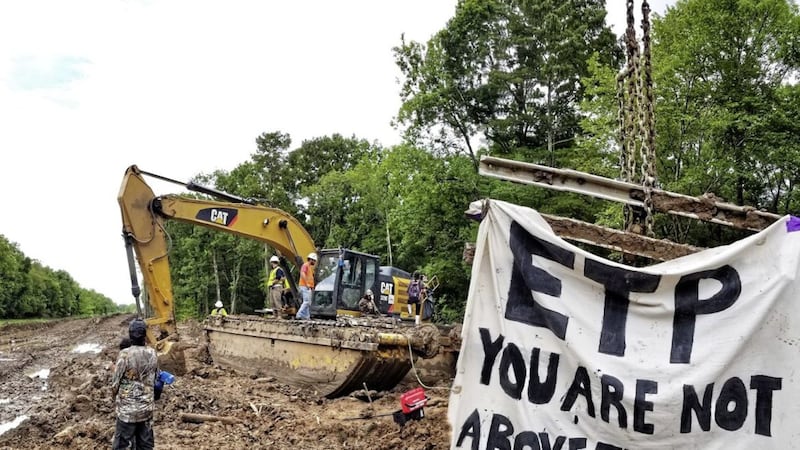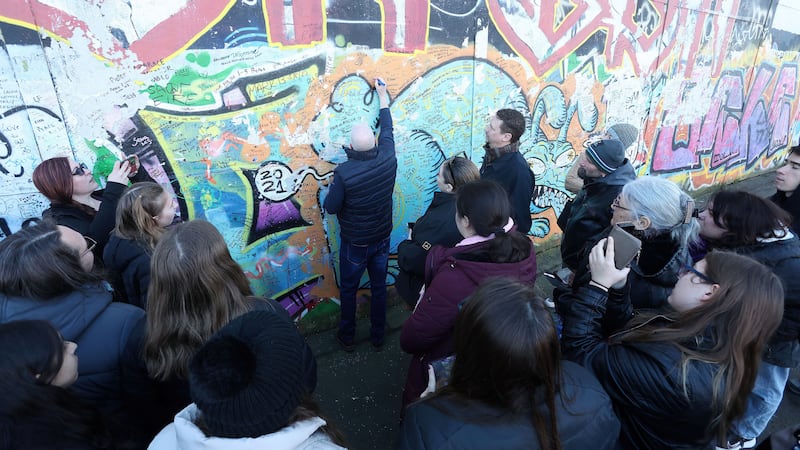CAMPAIGNS by indigenous people in north America are preventing projects equal to at least one quarter of US and Canadian greenhouse gas pollution.
The claim is contained in a report by the Indigenous Environmental Network, an alliance of indigenous peoples whose mission is to "protect the sacredness of Earth Mother from contamination and exploitation by respecting and adhering to indigenous knowledge and natural law".
The Indigenous Resistance Against Carbon campaign seeks to highlight and promote the work of water protectors, land defenders, pipeline fighters and many other grassroots campaigns.
The report says that indigenous peoples have developed "highly effective campaigns that utilise a blended mix of non-violent direct action, political lobbying, multimedia, divestment, and other tactics to accomplish victories in the fight against neoliberal projects that seek to destroy our world via extraction".
The campaigns of resistance against fossil fuel expansion across north America have been quantified, in terms of metric tonnes, and calculated to have stopped or delayed billions of tonnes of carbon dioxide equivalent emissions.
The Indigenous Environmental Network report says: "The world is delving deeper into climate chaos, and we must change course. In parallel to the severe threats Mother Earth is facing from climate change, the rights, well-being, and survival of Indigenous Peoples throughout the world are at grave risk due to the same extractive industries driving the climate crisis."
Too often flagging up the rights and cultures and the impact of colonial settlers throughout the world is derided as 'woke' - but the word woke is really just a blunt verbal cudgel mostly used by those who prefer not to engage with fact, don't want to know or who would rather we didn't mention it.
According to the Holocaust Museum in Houston, there were an estimated 10 million indigenous people living in north America when European settlers first arrived in the 15th century. By 1900, their estimated population was under 300,000.
The museum says: "Native Americans were subjected to many different forms of violence, all with the intention of destroying the community. In the late 1800s, blankets from smallpox patients were distributed to Native Americans in order to spread disease.
"There were several wars, and violence was encouraged; for example, European settlers were paid for each Penobscot person they killed."
Irish settlers were among those who perpetrated those crimes.
Even today, people from indigenous backgrounds are still subject to violence and murder as a result of their environmental activities.
According to a report published this week by an international non-profit organisation called Global Witness, 227 land and environmental defenders were killed last year - an average of more than four a week.
There was a disproportionate number of attacks against indigenous people with more than a third of all fatal attacks targeting them despite only making up 5 per cent of the world's population.
These were documented across the Philippines, Mexico, Central and South America. Global Witness also recorded attacks against indigenous people in Indonesia and Saudi Arabia. Indigenous peoples were the target of five of the seven mass killings recorded last year.
The report highlights in particular the killing of nine Tumandok indigenous people on December 30 following raids by police and military on the island of Panay in the Philippines. Seventeen others were arrested.
They were protesting against a dam project that would leave the agricultural lands and houses of 17,000 Tumandok individuals from 16 indigenous communities submerged in water.
In times of global environmental crisis and an apparent collective consensus to pretend that it is not happening maybe it's time we all 'woke' up and paid a bit more attention to these issues.









